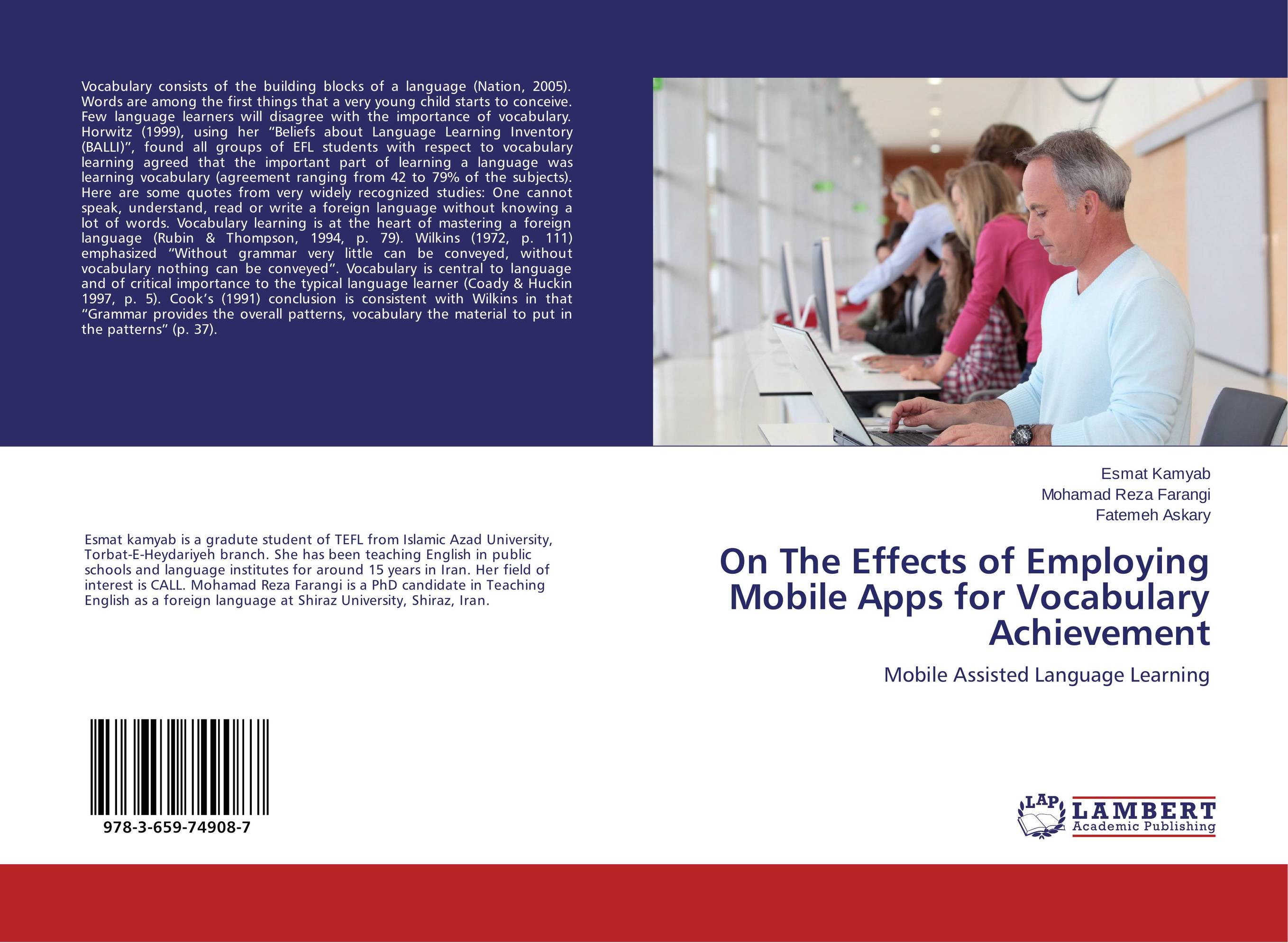| Поиск по каталогу |
|
(строгое соответствие)
|
- Профессиональная
- Научно-популярная
- Художественная
- Публицистика
- Детская
- Искусство
- Хобби, семья, дом
- Спорт
- Путеводители
- Блокноты, тетради, открытки
On The Effects of Employing Mobile Apps for Vocabulary Achievement. Mobile Assisted Language Learning

В наличии
| Местонахождение: Алматы | Состояние экземпляра: новый |

Бумажная
версия
версия
Автор: Esmat Kamyab,Mohamad Reza Farangi and Fatemeh Askary
ISBN: 9783659749087
Год издания: 2015
Формат книги: 60×90/16 (145×215 мм)
Количество страниц: 68
Издательство: LAP LAMBERT Academic Publishing
Цена: 25266 тг
Положить в корзину
| Способы доставки в город Алматы * комплектация (срок до отгрузки) не более 2 рабочих дней |
| Самовывоз из города Алматы (пункты самовывоза партнёра CDEK) |
| Курьерская доставка CDEK из города Москва |
| Доставка Почтой России из города Москва |
Аннотация: Vocabulary consists of the building blocks of a language (Nation, 2005). Words are among the first things that a very young child starts to conceive. Few language learners will disagree with the importance of vocabulary. Horwitz (1999), using her “Beliefs about Language Learning Inventory (BALLI)”, found all groups of EFL students with respect to vocabulary learning agreed that the important part of learning a language was learning vocabulary (agreement ranging from 42 to 79% of the subjects). Here are some quotes from very widely recognized studies: One cannot speak, understand, read or write a foreign language without knowing a lot of words. Vocabulary learning is at the heart of mastering a foreign language (Rubin & Thompson, 1994, p. 79). Wilkins (1972, p. 111) emphasized “Without grammar very little can be conveyed, without vocabulary nothing can be conveyed”. Vocabulary is central to language and of critical importance to the typical language learner (Coady & Huckin 1997, p. 5). Cook’s (1991) conclusion is consistent with Wilkins in that “Grammar provides the overall patterns, vocabulary the material to put in the patterns” (p. 37).
Ключевые слова: CALL, pedagogy, technology, TEFL



